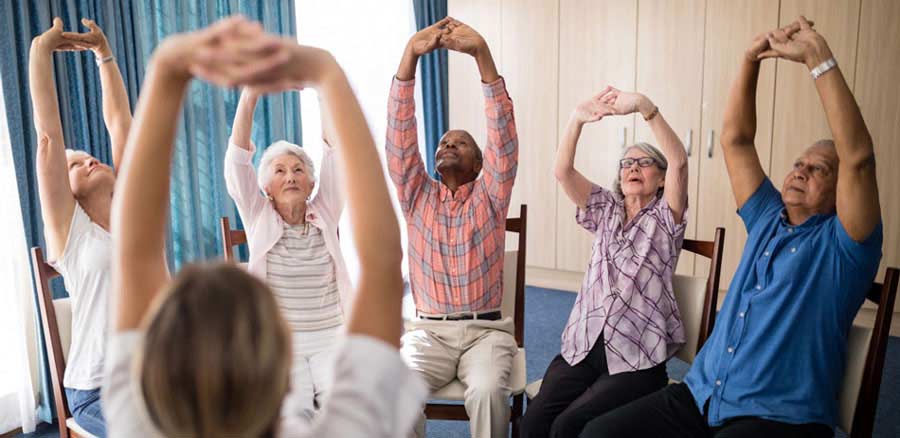When you have a family member who struggles from time to time with their memory, it can be a scary situation. Whether your loved one is just forgetful, or is dealing with the beginnings of a more serious memory loss issue, it's common to feel very helpless about the situation.
While solutions such as having them stay at an assisted living community that offers memory care can help in a lot of ways, there are still places where your loved one can use your assistance. While you may not be a doctor or nurse specializing in memory care issues, there are many ways in which you are able to assist your family member with memory retention and care.
Encourage Socializing
Socialization and interaction with other people is one of the best and simplest ways to assist a senior loved one with their memory care. Seniors who spend too much time alone or who do not engage with others are more likely to suffer from memory loss at a faster rate than seniors who have active social lives.
There are many activities for seniors to engage with others that don’t require either leaving an assisted living community or over-straining themselves, yet still provide the needed social interactions to promote a healthy memory. Encourage your loved one to take part in group activities, and help them keep up with their hobbies and interests rather than putting them to the side as they grow older.
Doing this can help your loved one strengthen their memory and enjoy their senior years, while simultaneously allowing you to be an active part of promoting healthy behavior and assisting in memory care.
Help With Organization
One of the best ways to aid a senior with their memory care is to help them with organization. When a senior’s living space is messy and things are constantly getting lost in the shuffle, it can be understandable as to why they can’t remember where their belongings are. After all, we are the same way when our own spaces are messy.
If there are clear places for everything, and a space is as clearly and neatly organized as it can be, it is easier for seniors to remember where everyday items like keys, dishware, glasses, and daily medications are located. When seniors can make connections with basics, it can encourage a healthy memory with both organization and recall.
Take some time out of your schedule to help your loved one sort through and reorganize their items and possessions, and work with them in the following weeks to practice finding these items and, more importantly, placing everything back in the same spot everyday. Your family member will appreciate the time that you put into helping them.
Serve Brain-Healthy Foods
There are many foods that encourage brain health, and you can help your loved one by either preparing these foods for them or making sure that their refrigerators and cupboards are stocked with the right ingredients.
Most healthy foods have multiple benefits, and a lot of foods that encourage heart health, immune health, and build energy in seniors and older adults have additional memory health benefits that you might not have known about. Spend some time researching the benefits of foods that have high good fat contents, whole grains, or antioxidants— all of which have proven results for improved memory.
If you have the time and live close enough to your loved one, try making a weekly meal visit where you can cook healthy meals with your family member, or prepare it before hand and bring enough so there are plenty of leftovers.
Promote Exercise
Another way to help your loved one with memory care is to encourage them to participate in different forms of exercise. When you exercise more oxygen is circulated through the brain, which helps with a lot of areas of brain health, including memory. There are plenty of simple exercises that most seniors can do that aren’t a strain on the body.
-
Balance exercise like chair leans and one-foot stands
-
Walking
-
Arm lifts
-
Leg raises
-
Wall “push ups”
Many senior living communities or local gyms and clubs have classes for seniors that focus on low-impact exercise that can help not only body health and endurance, but mental health as well. Take these classes with your loved one, or help them create an at-home routine to promote daily activity.





